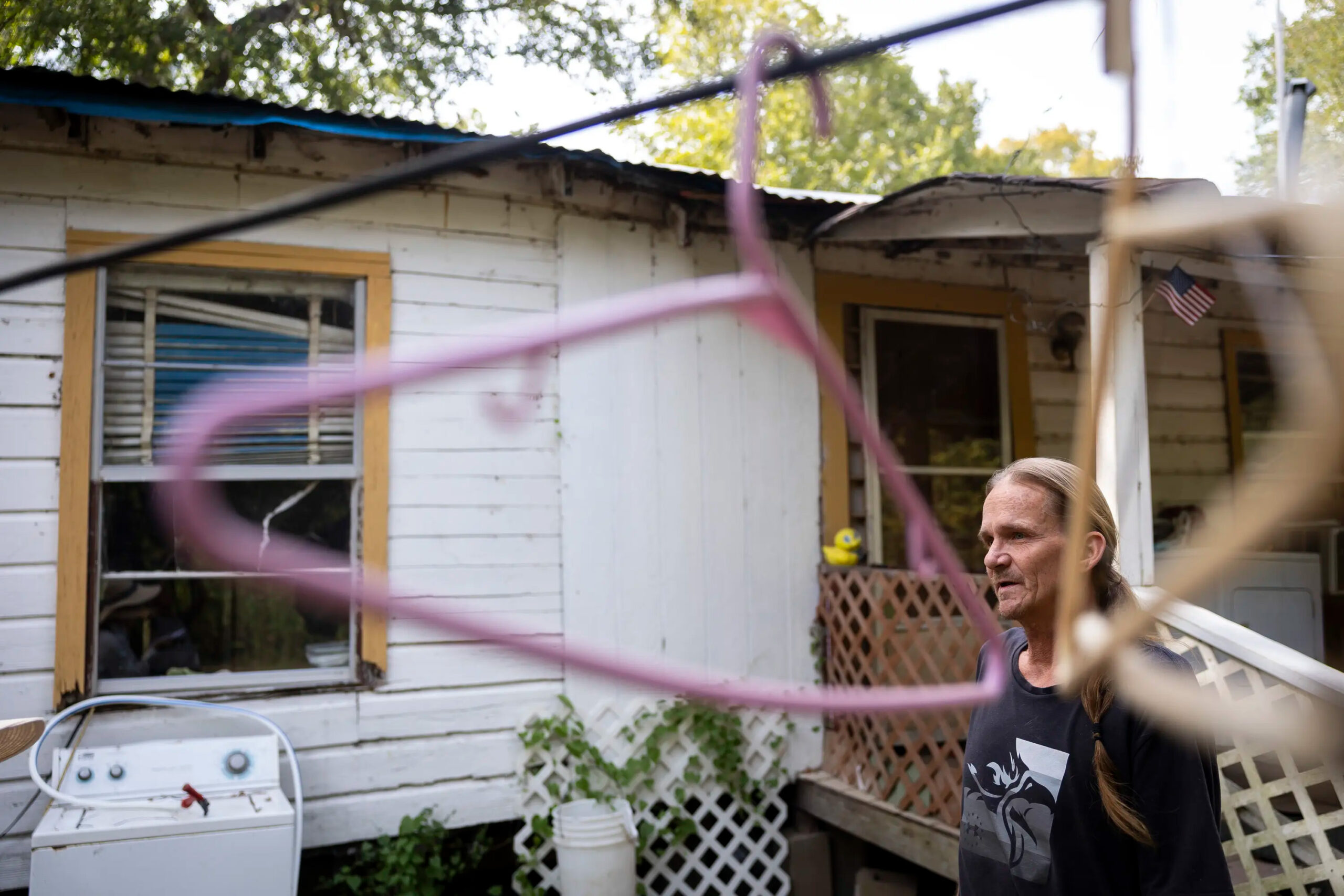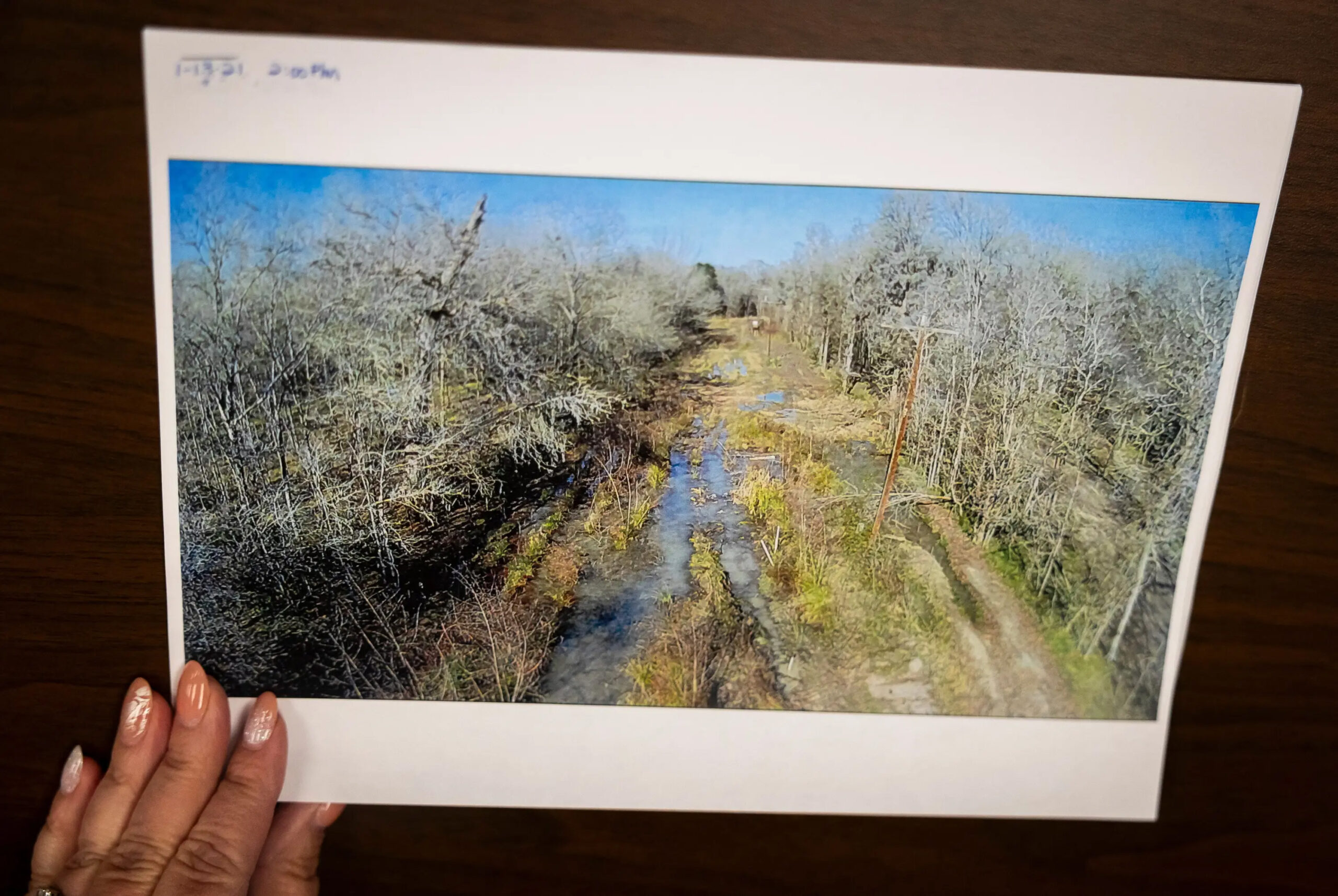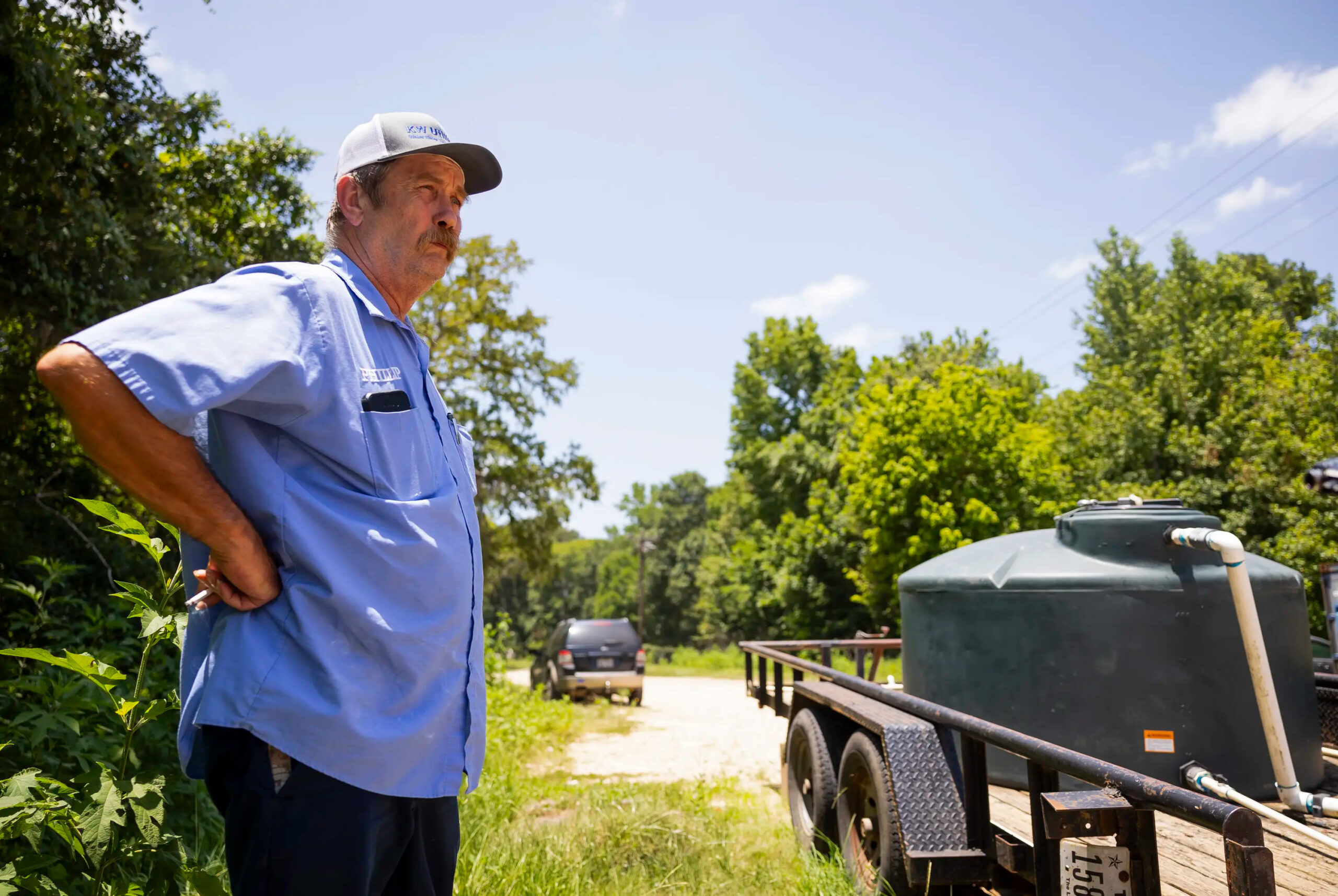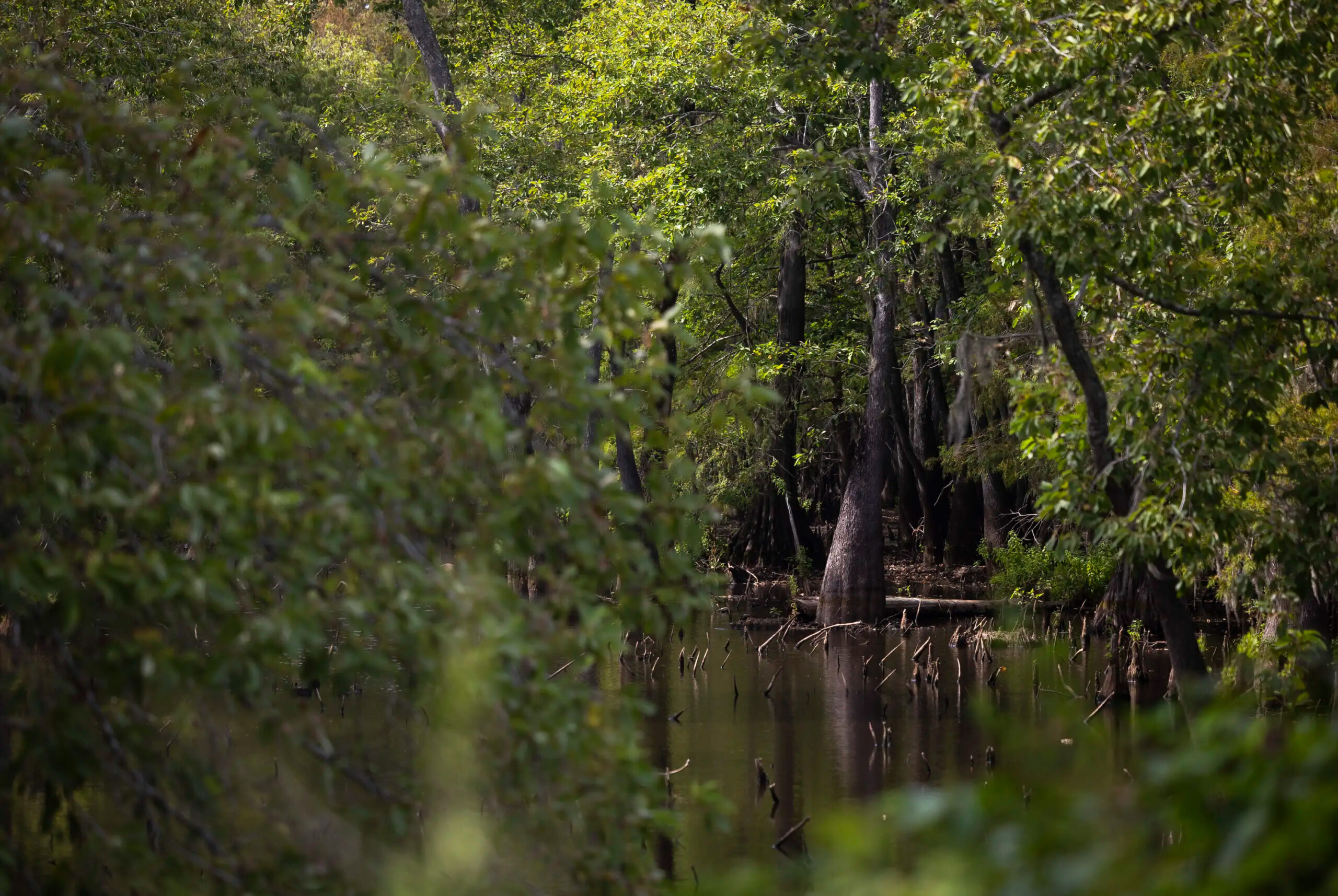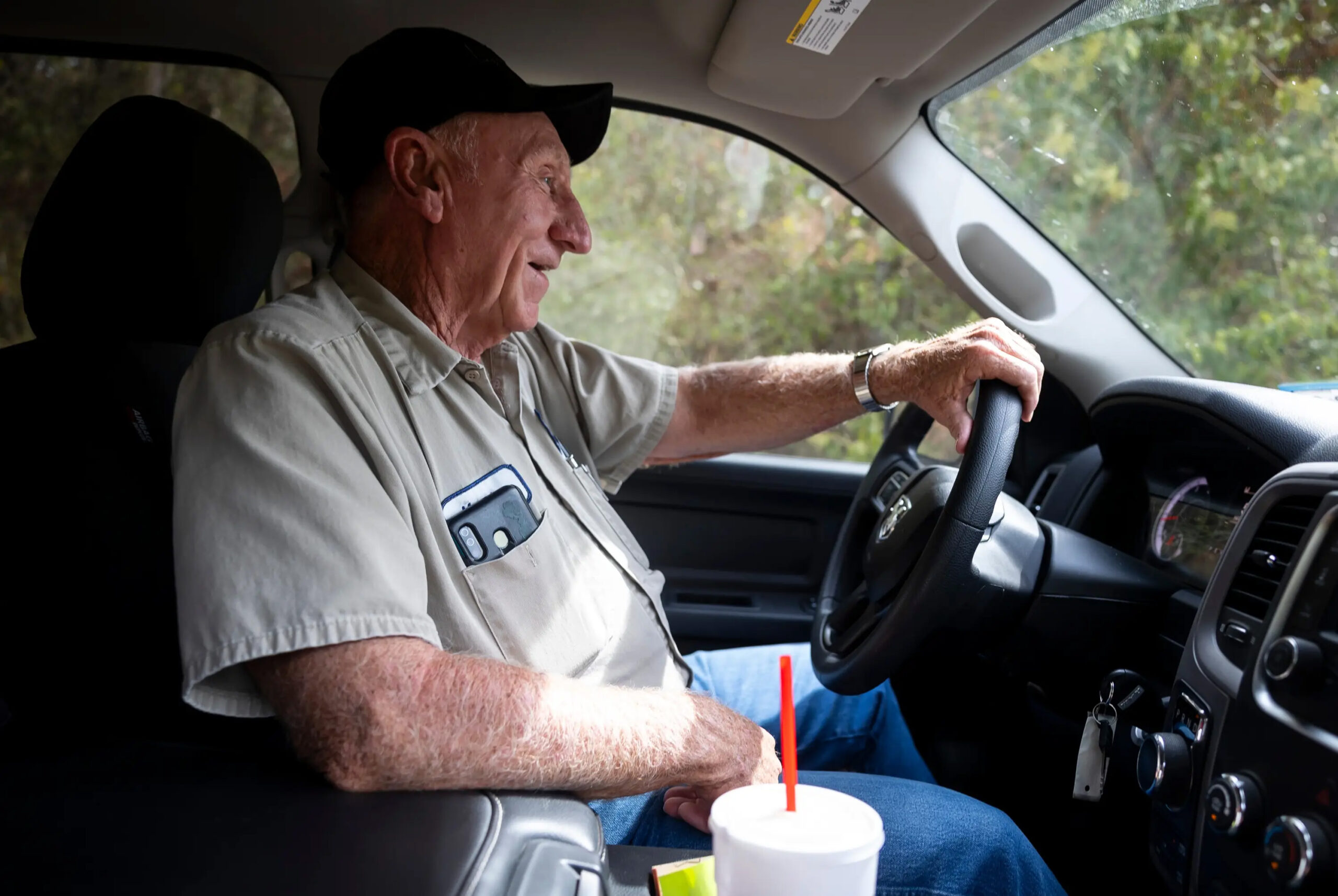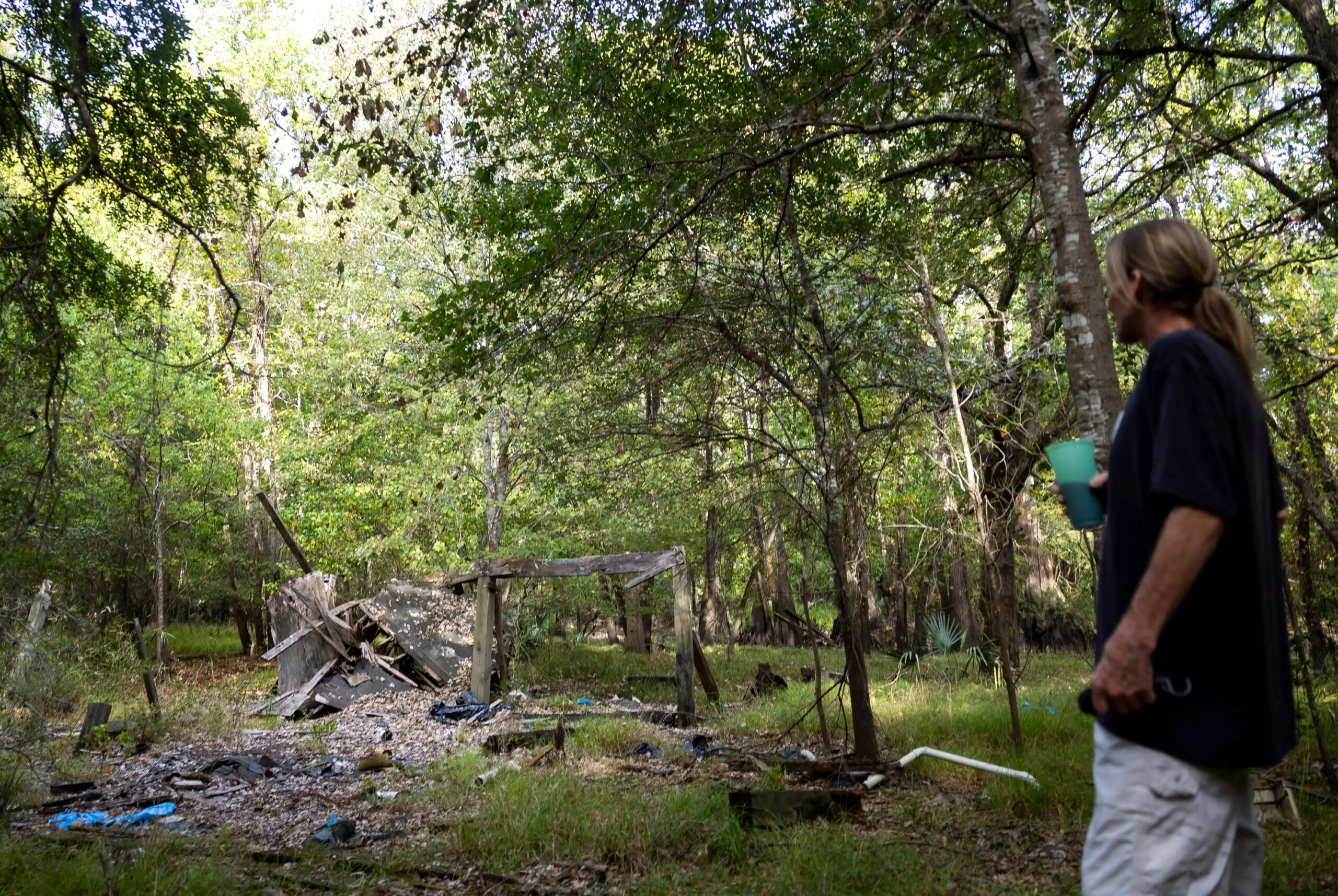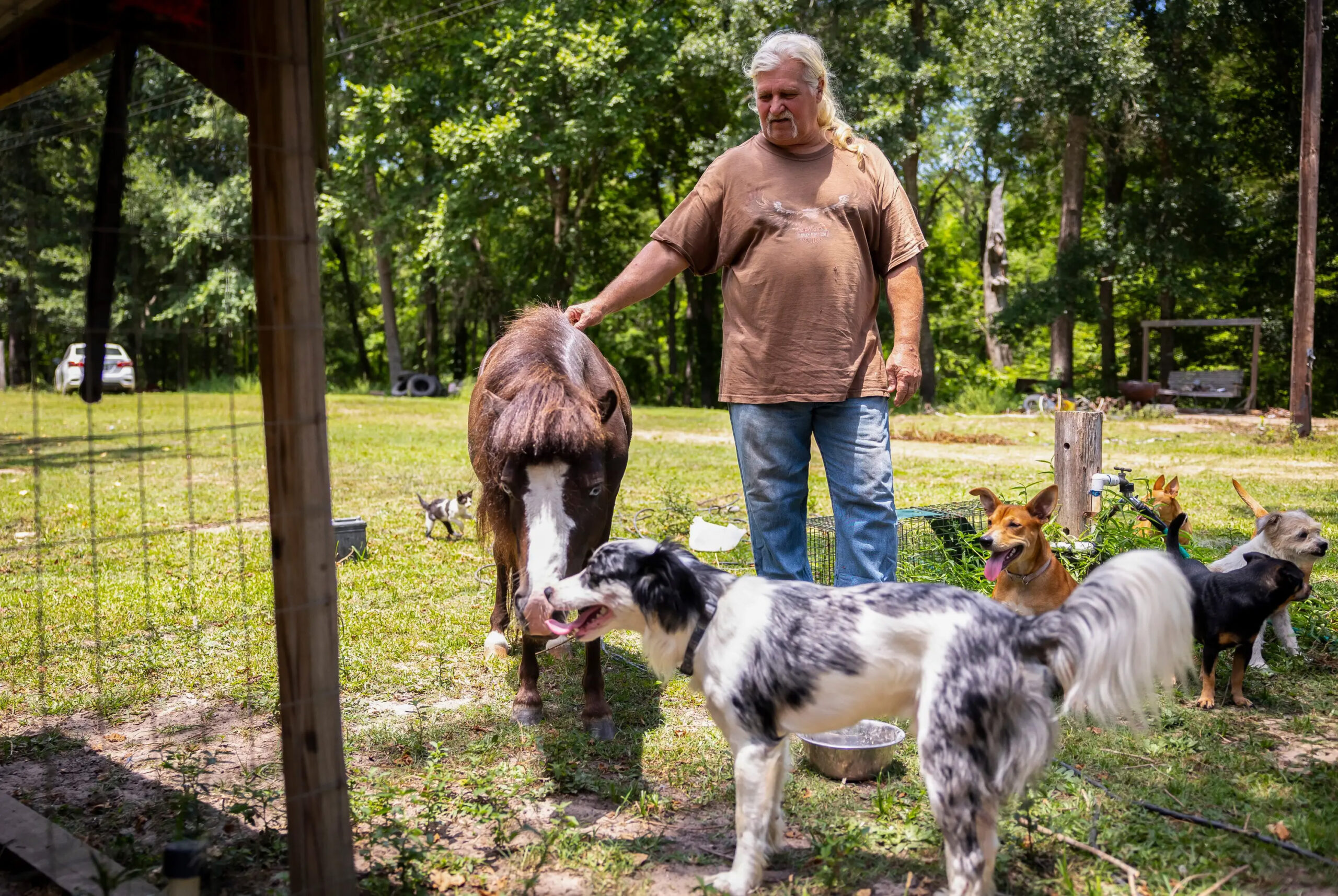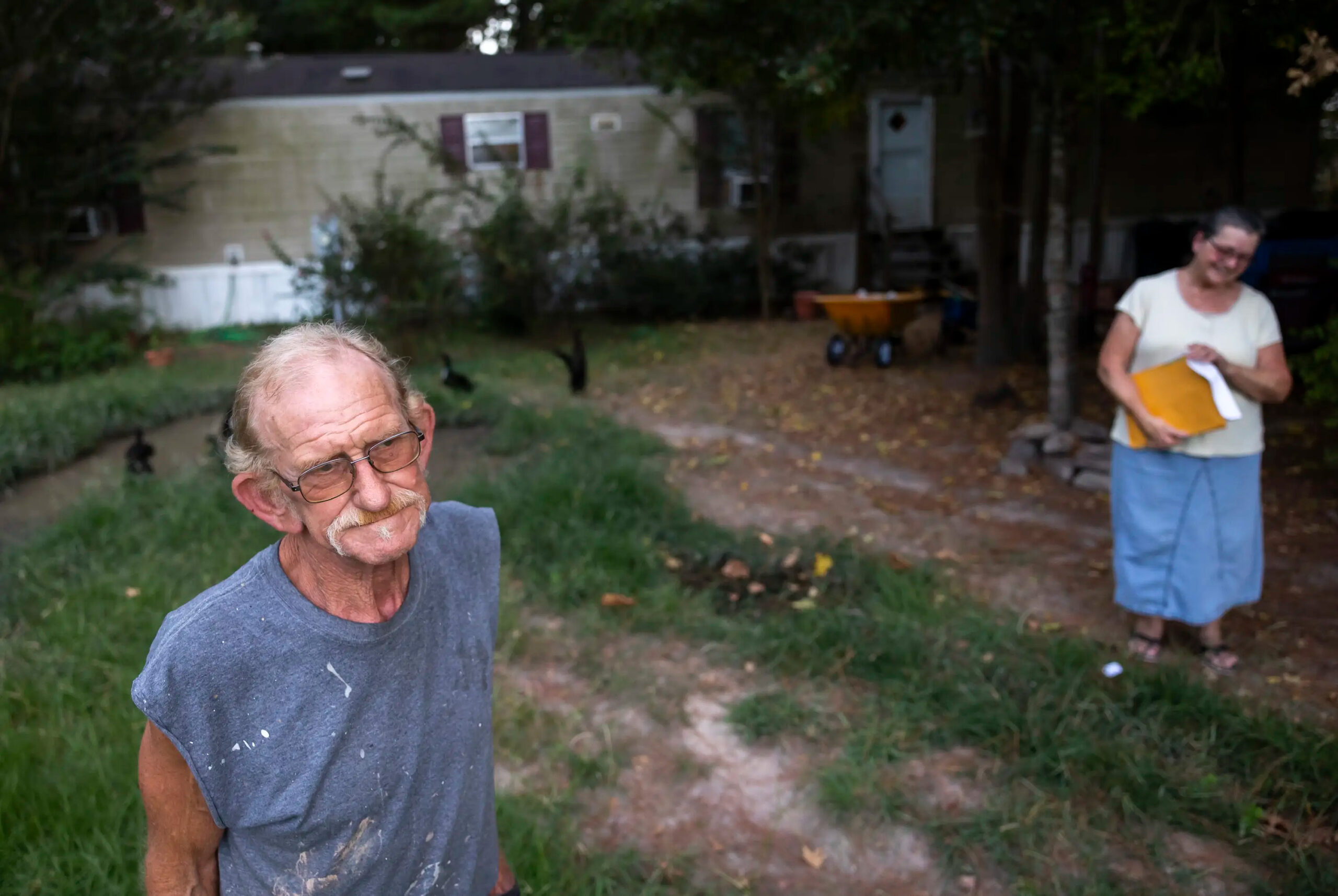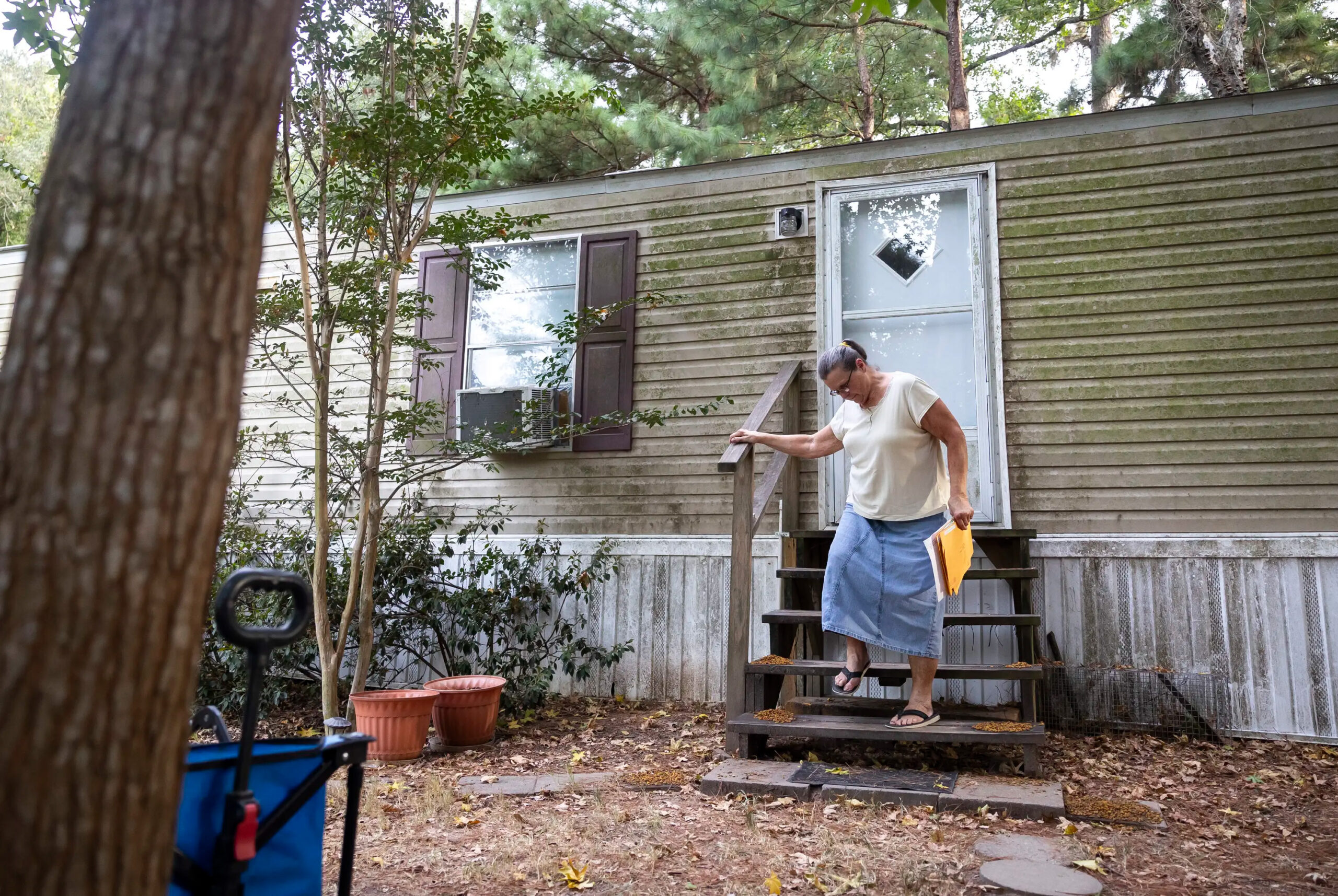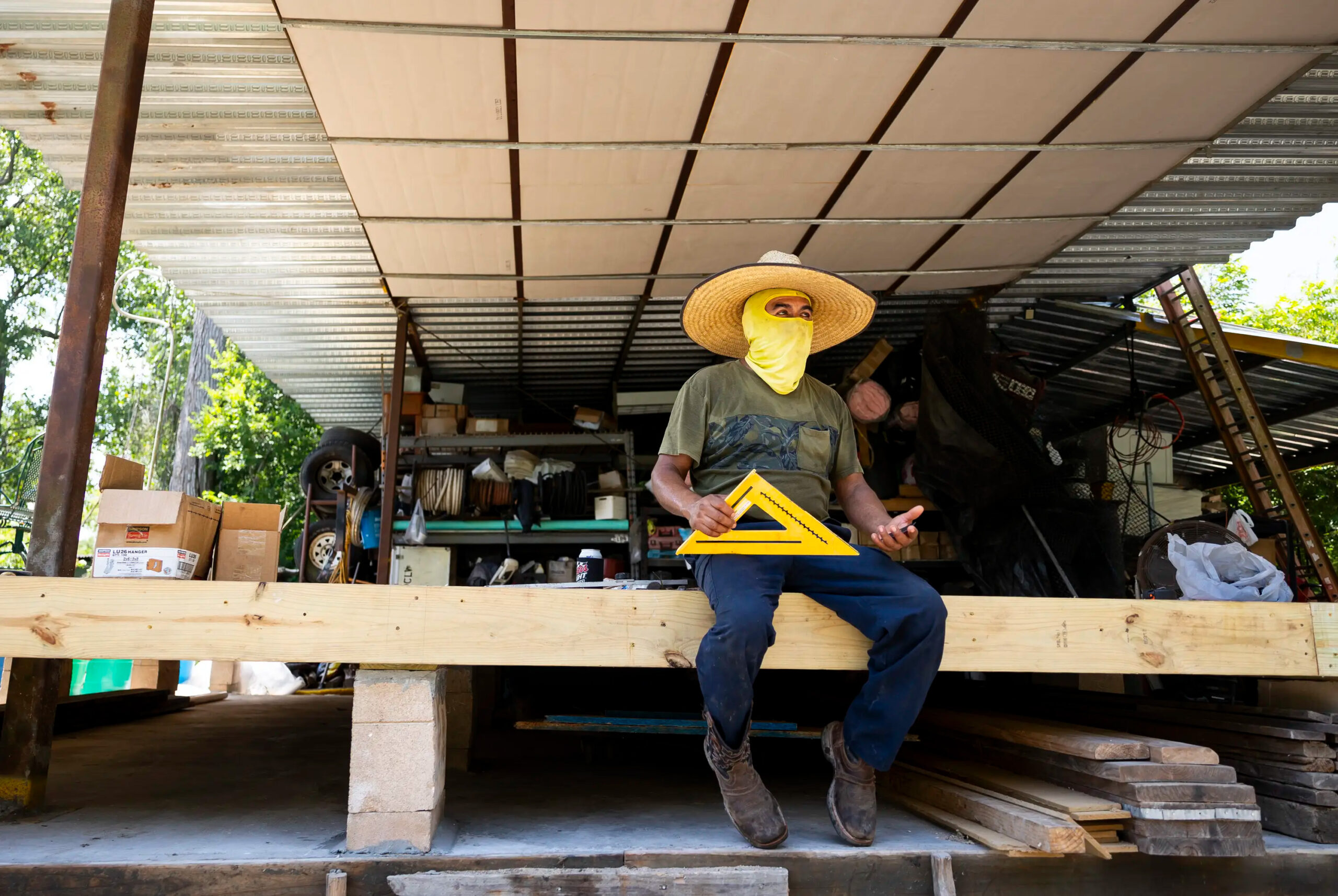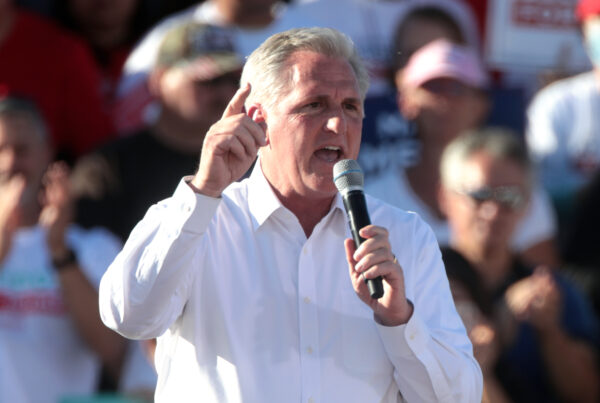From the Texas Tribune:
This story is part of the Pulitzer Center’s nationwide Connected Coastlines reporting initiative. For more information, go to pulitzercenter.org/connected-coastlines.
LIBERTY COUNTY — By the time they finally left Texas for good, Thad Todd, 64, and Linda Nelson, 58, had sworn off driving the flooded-out roads to their home. It was easier to stuff backpacks with food and water and hike the mile through the thicket.
The Trinity River washed away their old life during Hurricane Harvey. Repeated flooding and erosion since then never gave it back. The couple got rid of their Ford Mustang Cobra to buy a 1984 Chevrolet truck, until the mud and dirt tore up the truck’s bearings and seals. They traded the truck for a small four-wheel-drive Suzuki Samurai, until the makeshift trails that took over for the roads became too narrow. Then they traded that for a four-wheel ATV, which would often break down, forcing them to walk.
“My next step was gonna be to buy a horse,” Todd said.
Their small rural subdivision in the Trinity River bottom has been slowly abandoned, devastated by flooding and intense rains — the kind of weather that’s becoming more extreme in East Texas due to climate change — prompting a spiral of decline that’s left the area nearly uninhabitable.
Decades ago, there were as many as 100 occupied homes in Sam Houston Lake Estates, a densely-wooded neighborhood about 60 miles northeast of Houston. Today there are fewer than a dozen, according to interviews with locals.
Water hasn’t flowed to the homes in this neighborhood in more than three years — the water company says it can’t get vehicles in to maintain its well — and first responders won’t attempt to navigate the neighborhood’s narrow bridge and eroded dirt roads.
When someone is sick or injured, residents have to drive, or carry, their neighbors out of the woods to reach medical help.
This river bottom flooded often in the past, former residents said, but not like it has in the last decade. Climate change has likely intensified flooding and accelerated erosion, experts said.
“One of the issues is with climate change, we’re going to see more frequent flooding in general,” said Jonathan Phillips, a retired University of Kentucky geography professor who studied the Trinity River. The result for rivers is erosion, he said, which threatens nearby homes.
It used to be easy to live here. Now, it’s not. And that’s pushed people like Todd and Nelson to leave.


